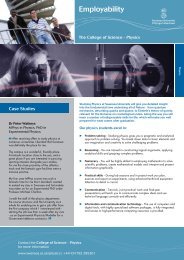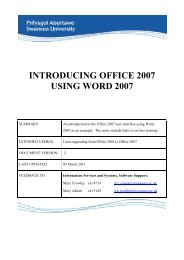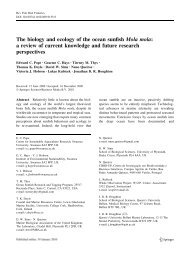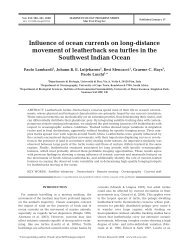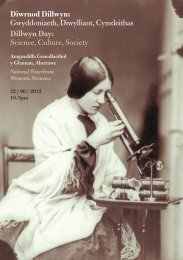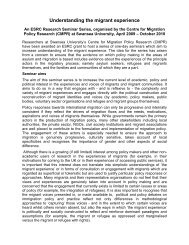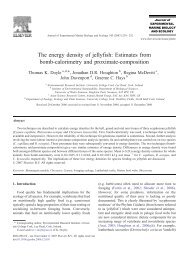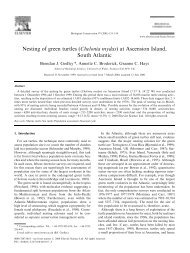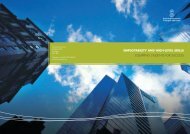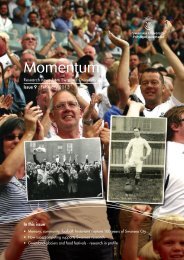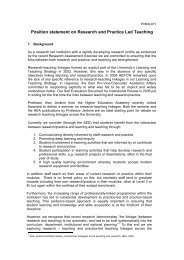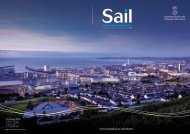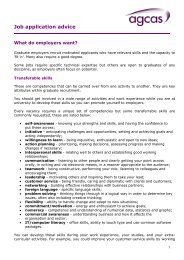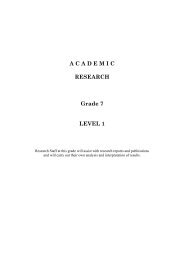ESRC Seminar Series - Briefing Paper 5 - Swansea University
ESRC Seminar Series - Briefing Paper 5 - Swansea University
ESRC Seminar Series - Briefing Paper 5 - Swansea University
You also want an ePaper? Increase the reach of your titles
YUMPU automatically turns print PDFs into web optimized ePapers that Google loves.
PANEL 4 Conclusions and reflections<br />
Professor Heaven Crawley, <strong>Swansea</strong><br />
The seminar concluded with a discussion of the key themes and issues which emerged over the<br />
course of the day. Despite a diversity of experiences and perspectives, a number of issues<br />
resonated across the presentations and discussion and require further consideration when<br />
thinking how best we can represent the voices of the migrant communities with whom we work:<br />
• There is a tension in dominant representations of ‘the migrant voice’. Migrants are most<br />
commonly presented as victims or oppressed but there is also a story (less often heard)<br />
of the migrant as a political activist or an individual with rights. The question of which of<br />
these represents the ‘authentic voice’ or the migrant remains contested and changes over<br />
space and time.<br />
• The issue of ‘who tells the story?’ is a complex one and largely contingent on who is given<br />
the space to express / articulate a voice. This will depend in part on differences of power<br />
and access which are associated with different statuses and identities within and between<br />
migrant communities. These differences in power and access are associated, most<br />
commonly with age and gender, but also with educational background and previous<br />
experience of political engagement and activism. The dangers of ‘essentialising’ the<br />
migrant experience through particular associations and representations were emphasised<br />
by several speakers.<br />
• The content of the story is as important as who tells it. Differences within and between<br />
the experiences and backgrounds of different migrant communities were emphasised.<br />
Many participants considered that there is no necessary dichotomy between the migrant<br />
as victim and oppressed and as an individual with rights but considered that some migrant<br />
groups and some communities choose to present specific aspects of their experiences and<br />
identities over others to reflect the wider political and policy context within which they<br />
find themselves.<br />
• Several speakers reflected on the implications of utilising different approaches to<br />
capturing and representing ‘the migrant experience’. Reflecting and building on earlier<br />
methodological considerations (<strong>Seminar</strong> 3), there was a focus on the constraints and<br />
opportunities provided by different techniques, for example, digital story telling, and in<br />
working with researchers from different backgrounds.<br />
• It was concluded that ‘who hears the story’ of migration and of the migrant is often a<br />
reflection of the political context within which the story is being told and the motivations<br />
of those to whom it is being communicated. This may require some difficult strategic<br />
decisions to be made about where to target stories about ‘the migrant experience’.



